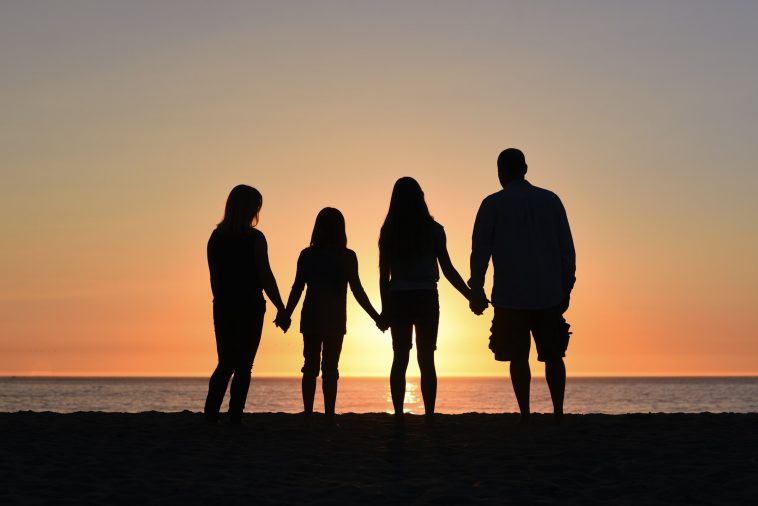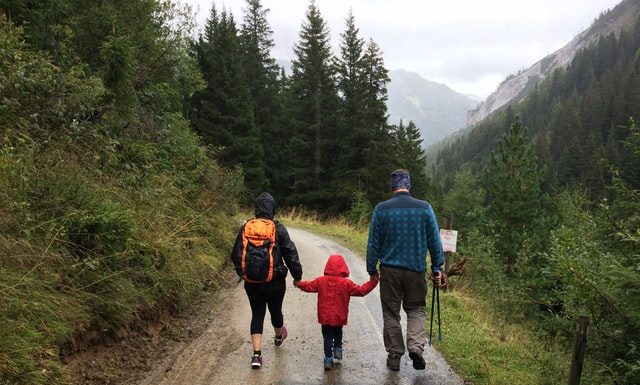Becoming more mindful as a family unit is a great way to bond with your children while also creating a healthier and happier family dynamic. Children often learn by emulating their parents and look up to them as role models. So, by modeling positive habits and encouraging various behaviors through mindfulness, you can guide your children on how to be more mindful in their own lives as well as improve your own along the way. Although mindfulness is often thought of in relation to meditation, there are many ways that you can engage in mindful activities with your family past this practice.
See below for the top 10 ways to become a more mindful family!
1. Foster Open Communication
An open and accepting environment is the cornerstone of every mindful family. Being vulnerable takes great courage, and it can also promote immense inner growth. By being open with your children about your struggles and feelings while encouraging your children to do the same, you can guide them on how to increase their emotional intelligence and solve their issues in mindful and productive ways.
2. Engage in Gratitude
Loving-kindness is a key component of mindfulness and is expressed in the family environment through appreciation and gratitude. By sharing with your children how grateful you are for their presence and actions, it will build up your child’s self-esteem, confidence, and self-love. You can also encourage your child to think of things that they are grateful for as well to help them shift their focus onto others and learn the importance of community relationships and support systems. Discover more ways to practice gratitude every day.
3. Practice Forgiveness
The grudge and anger we hold inside our hearts often do more harm to us then to the target. We all go through difficulties and struggles sometimes, particularly in the family dynamic we are often the target of each other’s turmoil. But by teaching your children the importance of both apologizing and forgiving, you can give your child the tools to engage in positive relationships with others that are focused on growth and acceptance.
4. Support Others Through Generosity
Generosity not only gives us a positive feeling, but it also spreads positivity to others as well. By creating a ripple effect of kindness, it can teach your children the importance of non-attachment to material objects and the healing effects of compassion towards others.
5. Encourage Imaginative Play
Although it is certainly important to make learning a priority, playtime should also be just as equally emphasized! By nurturing your child’s natural imagination, it will encourage them to become braver and more creative. What better way to be in the moment than to be fully immersed in playtime and create an entirely new world in the mind?
6. Enjoy Mindful Mornings
By making mindfulness part of your family’s daily routine, it will emphasize the importance of positive habits in your child’s life and give them the tools to engage in beneficially transformative behaviors. You can begin this practice by starting every morning with a brief mindfulness meditation and some breathing exercises, helping your child to start their day on the right foot.
7. Practice Mindful Eating
Food and the dinner table are often the centerpieces of every family. When at the dinner table, try to encourage your child to be fully present at the meal and engage with others around them. A good way to start is by switching off the TV or music and putting all phones to the side, to encourage your child to be fully present with their family. After this is established, you can gradually begin to guide your child on slowing down their eating and being more mindful and aware of their eating habits.
8. Engage in Mindful Discipline
Although mindfulness is often described through fun and games, it can also be integrated into your discipline strategies with your child. The key components of mindful discipline are open communication, validation, mindful listening, reflection, and encouragement of new behaviors and actions. Practically, this would look like encouraging your child to discuss their feelings and be in touch with their actions, validating their personal experience, listening mindfully without lecturing, encouraging them to reflect on their own behavior, and then gently guiding them towards a more positive alternative behavior to do in the future.
9. Relish the Silence
In modern times, many children are parked in front of the TV, computer, or smartphone to play various games and watch movies. But an alternative choice to encourage greater mindfulness in your family is to structure periods of silence throughout the day. During these moments, you can guide your child through a meditation or breathing exercise, or simply allow them to do an activity in silence, whether that be reading, writing, or drawing.
10. Marinate in Mindful Movement
All children need exercise to encourage healthy physical development, and by engaging in mindful movement you can also help them develop their mental health as well. Try guiding your child through an embodied yoga practice or take them on a mindful hike in nature. Whatever the physical practice may be, encourage your child to be present in their body and aware of their surroundings throughout the exercise.
Read more:
6 Ways that Exercise is Good for Your Mental Health
Why Hiking Can Improve Your Cognitive And Emotional Health
Summary
Incorporating mindfulness into your family dynamic has the potential to transform the family environment and foster more positive relationships and healthier development. The tools of mindfulness can teach your child how to regulate their emotions, reduce their stress, and connect with others in a more open and positive manner. Mindfulness can also help parents as well by giving them the tools to be calmer when faced with difficulties and be a more positive role model for their child. So, try incorporating mindfulness into your family’s life and see the many benefits of this practice for yourself!
Don’t forget to share this article with your friends and family to help foster an overarching mindful family dynamic so that your child can be immersed in mindfulness in a variety of different relationships as well.





